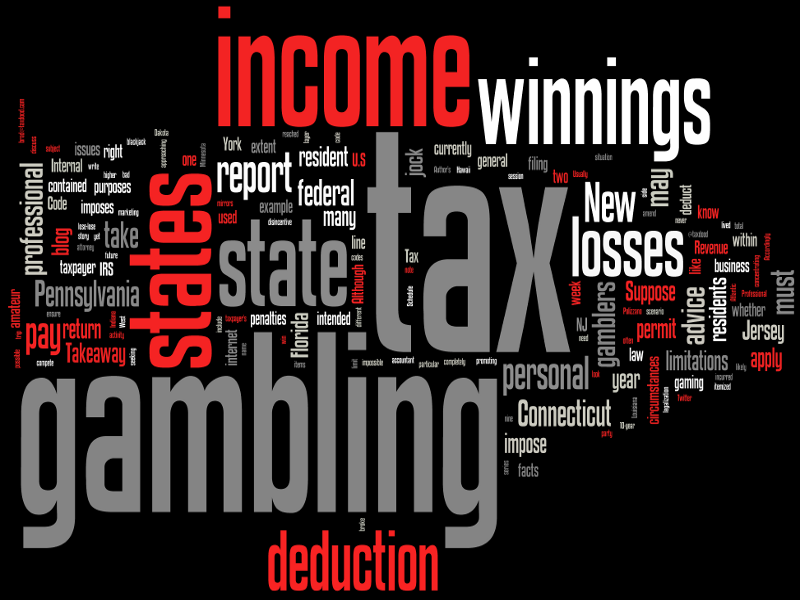Ohio Gambling Tax Rate
The state then disburses the tax revenue to the following funds: 51 percent is directed to the County Fund, 34 percent to the Student Fund, 5 percent to the Host City Fund, 3 percent each to the Ohio State Racing Commission and the Ohio Casino Control Commission and 2 percent each to the Law Enforcement Training Fund and the Problem Gambling. The Ohio Senate has its own bill to legalize sports betting, SB111, which would impose a 6.25 percent tax on adjusted revenue and allocate the money to the general fund. This tax is estimated to raise $15 million in fiscal year 2021. (The forecast was made in 2019, and revenue is unlikely to materialize in FY 2021.).
tax deadline update: please note the filing deadline for the 2019 tax year has been extended to july 15, 2020.
Taxation
As of Monday, June 15, 2020, our offices will be open and available to assist you with tax payments during our new business hours 9:00am – 3:00pm, Monday through Friday. For tax questions, please contact the Tax office at 513.539.7374, option 3 or tax@monroeohio.org.
Adhering to COVID-19 safety standards, all tax preparation will continue to be processed by mail. Please submit your tax documents via mail, fax, drop box or the secure portal. Contact the Tax office to obtain access to the secure portal.
required tax forms
Individual Returns: All W-2s, FED 1040 (page 1), Schedules 1, Schedules C, E, F & K-1, W2-G, 1099-MISC and copies of other city tax returns if you are requesting credit for taxes paid to that city.

Business Returns: Monroe return, 1120, 1120S, and 1065.
City of Monroe tax rate: 2%
All residents of Monroe with earned income are required to file an income tax return with the City. *Retired residents are required to file a return every 3 years (next filing year 2021). The local income tax rate is 2% and applies to gross wages, salaries and other personal service compensation, and net profits of Monroe businesses. Qualifying homeowner’s and their dependents are exempt from the .5% increase and are taxed at a 1.5% rate. Taxable income also includes gambling winnings, rents from property and/or any other profit from businesses. Social security, pensions, interest and dividends are not taxable.
The City provides 100 percent credit up to your individual tax rate (2% for renters and 1.5% for homeowners) OR the tax rate paid to the workplace municipality (whichever is lower).

Questions or assistance on your Federal Return, contact the IRS at 1-800-829-1040 or visit IRS website. Questions or assistance on your State Return, contact the State at 1-800-282-1780 or visit Ohio Department of Taxation website.
Questions regarding your property tax/real estate tax, contact the Butler County Auditor at 513-887-3154 or visit Auditor’s website or Warren County Auditor at 513-695-1300 or visit Auditor’s website.
More Articles
Do you like to gamble? If so, then you should know that the taxman beats the odds every time you do. The Internal Revenue Service and many states consider any money you win in the casino as taxable income. This applies to all types of casual gambling – from roulette and poker tournaments to slots, bingo and even fantasy football. In some cases, the casino will withhold a percentage of your winnings for taxes before it pays you at the rate of 24 percent.
Casino Winnings Are Not Tax-Free
Casino winnings count as gambling income and gambling income is always taxed at the federal level. That includes cash from slot machines, poker tournaments, baccarat, roulette, keno, bingo, raffles, lotteries and horse racing. If you win a non-cash prize like a car or a vacation, you pay taxes on the fair market value of the item you win.

By law, you must report all your winnings on your federal income tax return – and all means all. Whether you win five bucks on the slots or five million on the poker tables, you are technically required to report it. Job income plus gambling income plus other income equals the total income on your tax return. Subtract the deductions, and you'll pay taxes on the resulting figure at your standard income tax rate.

How Much You Win Matters
While you're required to report every last dollar of winnings, the casino will only get involved when your winnings hit certain thresholds for income reporting:
- $5,000 (reduced by the wager or buy-in) from a poker tournament, sweepstakes, jai alai, lotteries and wagering pools.
- $1,500 (reduced by the wager) in keno winnings.
- $1,200 (not reduced by the wager) from slot machines or bingo
- $600 (reduced by the wager at the casino's discretion) for all other types of winnings but only if the payout is at least 300 times your wager.
Win at or above these amounts, and the casino will send you IRS Form W2-G to report the full amount won and the amount of tax withholding if any. You will need this form to prepare your tax return.
Understand that you must report all gambling winnings to the IRS, not just those listed above. It just means that you don't have to fill out Form W2-G for other winnings. Income from table games, such as craps, roulette, blackjack and baccarat, do not require a WG-2, for example, regardless of the amount won. It's not clear why the IRS has differentiated it this way, but those are the rules. However, you still have to report the income from these games.
What is the Federal Gambling Tax Rate?

Standard federal tax withholding applies to winnings of $5,000 or more from:
- Wagering pools (this does not include poker tournaments).
- Lotteries.
- Sweepstakes.
- Other gambling transactions where the winnings are at least 300 times the amount wagered.
If you win above the threshold from these types of games, the casino automatically withholds 24 percent of your winnings for the IRS before it pays you. If you cannot provide a Social Security number, the casino will make a 'backup withholding.' A backup withholding is also applied at the rate of 24 percent, only now it includes all your gambling winnings from slot machines, keno, bingo, poker tournaments and more. This money gets passed directly to the IRS and credited against your final tax bill. Before December 31, 2017, the standard withholding rate was 25 percent and the backup rate was 28 percent.
The $5,000 threshold applies to net winnings, meaning you deduct the amount of your wager or buy-in. For example, if you won $5,500 on the poker tables but had to buy in to the game for $1,000, then you would not be subject to the minimum withholding threshold.
It's important to understand that withholding is an entirely separate requirement from reporting the winning on Form WG-2. Just because your gambling winning is reported on Form WG-2 does not automatically require a withholding for federal income taxes.
Can You Deduct Gambling Losses?
If you itemize your deductions on Schedule A, then you can also deduct gambling losses but only up to the amount of the winnings shown on your tax return. So, if you won $5,000 on the blackjack table, you could only deduct $5,000 worth of losing bets, not the $6,000 you actually lost on gambling wagers during the tax year. And you cannot carry your losses from year to year.
The IRS recommends that you keep a gambling log or spreadsheet showing all your wins and losses. The log should contain the date of the gambling activity, type of activity, name and address of the casino, amount of winnings and losses, and the names of other people there with you as part of the wagering pool. Be sure to keep all tickets, receipts and statements if you're going to claim gambling losses as the IRS may call for evidence in support of your claim.
What About State Withholding Tax on Gambling Winnings?
There are good states for gamblers and bad states for gamblers. If you're going to 'lose the shirt off your back,' you might as well do it in a 'good' gambling state like Nevada, which has no state tax on gambling winnings. The 'bad' states tax your gambling winnings either as a flat percentage of the amount won or by ramping up the percentage owed depending on how much you won.
Each state has different rules. In Maryland, for example, you must report winnings between $500 and $5,000 within 60 days and pay state income taxes within that time frame; you report winnings under $500 on your annual state tax return and winnings over $5,000 are subject to withholding by the casino due to state taxes. Personal tax rates begin at 2 percent and increase to a maximum of 5.75 percent in 2018. In Iowa, there's an automatic 5 percent withholding for state income tax purposes whenever federal taxes are withheld.
State taxes are due in the state you won the income and different rules may apply to players from out of state. The casino should be clued in on the state's withholding laws. Speak to them if you're not clear why the payout is less than you expect.
How to Report Taxes on Casino Winnings
Michigan Gambling Tax Rate
You should receive all of your W2-Gs by January 31 and you'll need these forms to complete your federal and state tax returns. Boxes 1, 4 and 15 are the most important as these show your taxable gambling winnings, federal income taxes withheld and state income taxes withheld, respectively.
You must report the amount specified in Box 1, as well as other gambling income not reported on a W2-G, on the 'other income' line of your IRS Form 1040. This form is being replaced with a simpler form for the 2019 tax season but the reporting requirement remains the same. If your winnings are subject to withholding, you should report the amount in the 'payment' section of your return.
Indiana Gambling Tax Rates
Different rules apply to professional gamblers who gamble full time to earn a livelihood. As a pro gambler, your winnings will be subject to self-employment tax after offsetting gambling losses and after other allowable expenses.



